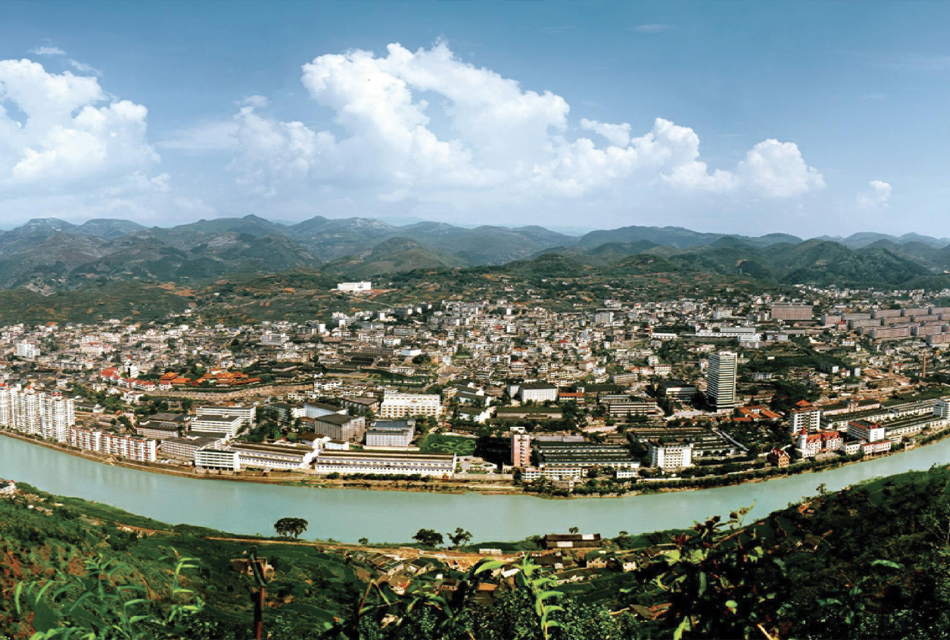In the hinterland of the Yunnan-Kweichow plateau, thousands of kilometres from the coast, a river flows through the unique karst terrain and brings you a mysterious bouquet hidden in the mountains. This is the town of Moutai in China’s Guizhou province, a special and magical land where the liquor called Kweichow Moutai comes to life.


The production of the liqueur has a thousand-year history. The Chishui River that flows here is the sweetest spirit river in China. The river is rich in a variety of useful minerals and trace elements that are beneficial to health. The climate and the slightly acidic purple soil of the valley together generate a unique, exceptional and natural water for making Moutai.
Throughout the Moutai production year, the organic sorghum and wheat grown in the area provide an essential bouquet for the famous ‘Jiang fragrance’. The grains undergo brewing sections such as batch feeding, steaming (9 times), starter propagation, material storage, material addition, stacking, fermentation (8 times) and distillation, etc. The whole process takes five years.
If you drink Kweichow Moutai for the first time, you will surely be attracted by its strong and elegant aroma. This is the ‘Jiang flavour’, a complex, sweet and multi-layered aroma, which is produced by the natural fermentation of organic grains. The palate is initially bitter, followed by a nutty aroma and the ‘koji aroma’. This is an important characteristic of Moutai, similar to the mixed aroma of fermented grain and flowers.
In 1982, a Japanese researcher could detect up to 230 types of flavours in Moutai liqueur, while the latest research has located 1,000 types of volatile and semi-volatile ingredients, yet to be identified. It is therefore not surprising that the Jiang flavour of Moutai liqueur remains a mystery today.